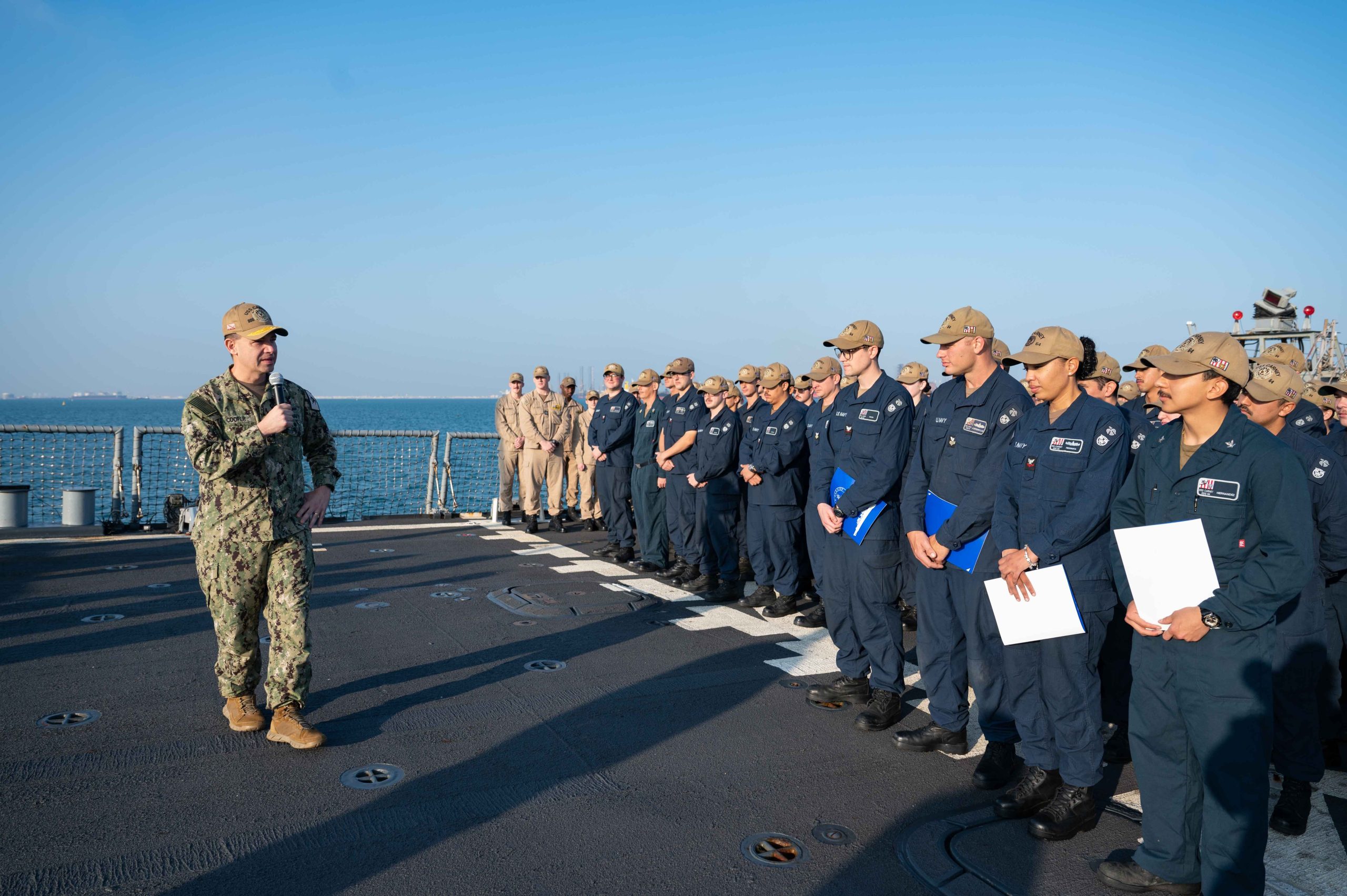In a recent development, the United States carried out two “self-defense strikes” in Yemen on Wednesday, targeting three Houthi mobile anti-ship cruise missiles that were reportedly in preparation for launching into the Red Sea.
The announcement came from U.S. Central Command (CENTCOM), emphasizing the necessity of these actions to safeguard U.S. Navy ships and merchant vessels in the region.
Over the past few days, the U.S. has engaged in joint airstrikes with the United Kingdom, successfully neutralizing 44 distinct Houthi targets. Simultaneously, the Houthi rebel group has launched 48 attacks on vessels in the Red Sea and Gulf of Aden since November 19, contributing to the escalating tensions in the region.

According to CENTCOM, the decision to conduct the strikes was prompted by the identification of Houthi missiles in Yemen-controlled areas, deemed a clear and imminent threat to U.S. Navy ships and merchant vessels.
The strategic objective, as outlined in CENTCOM’s statement, is to uphold the freedom of navigation and enhance the safety and security of international waters for both U.S. Navy and merchant vessels.
The engagement in self-defense strikes underscores the U.S. commitment to proactively address potential threats in the region, aligning with broader efforts to maintain stability and protect vital maritime interests.
The joint airstrikes with the U.K. reflect a collaborative approach to countering Houthi activities that pose risks to naval and commercial operations in critical waterways.
The continuous exchange of hostilities between the U.S.-led coalition and the Houthi rebels adds complexity to the regional dynamics, raising questions about the underlying factors contributing to this cycle of confrontations.
The U.S. military’s emphasis on protecting freedom of navigation underscores the strategic importance of maritime routes in the Red Sea and Gulf of Aden, further accentuating the geopolitical significance of the region.
As the situation unfolds, the evolving pattern of retaliatory actions and preemptive strikes shapes the narrative around the U.S. military presence in the Middle East. The U.S. commitment to ensuring the security of international waters serves as a focal point, with implications for diplomatic relations and the broader geopolitical landscape.
The frequency and scale of these engagements highlight the delicate balance between asserting defensive measures and avoiding an escalation that could lead to a broader conflict.
The evolving dynamics in the region necessitate a nuanced approach to address the root causes of hostilities and explore diplomatic avenues for de-escalation.
In the context of maritime security, the U.S. self-defense strikes underscore the intricate challenges associated with safeguarding key waterways. The pursuit of a comprehensive strategy that combines military deterrence with diplomatic initiatives becomes imperative to navigate the complexities of the ongoing.


